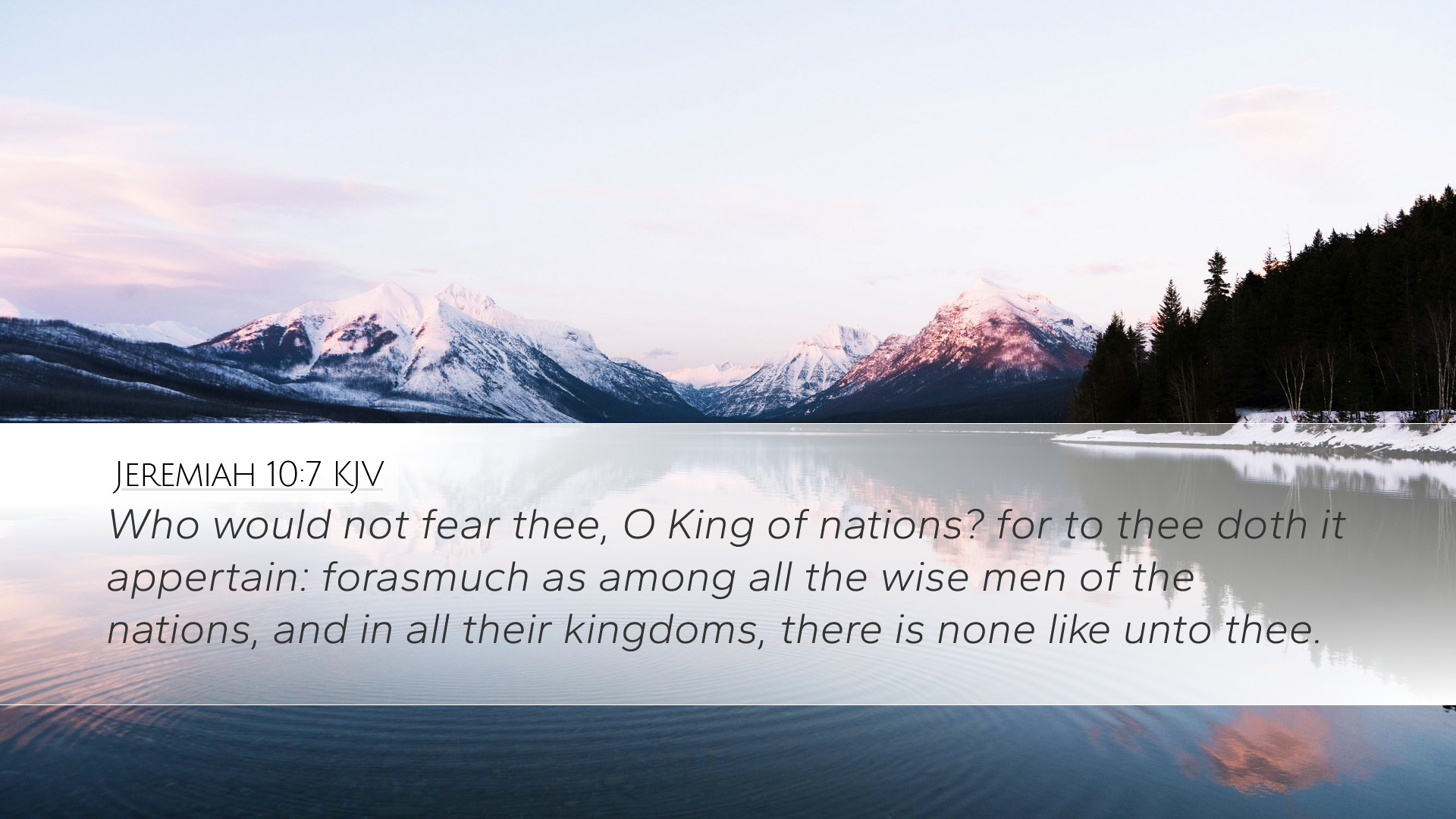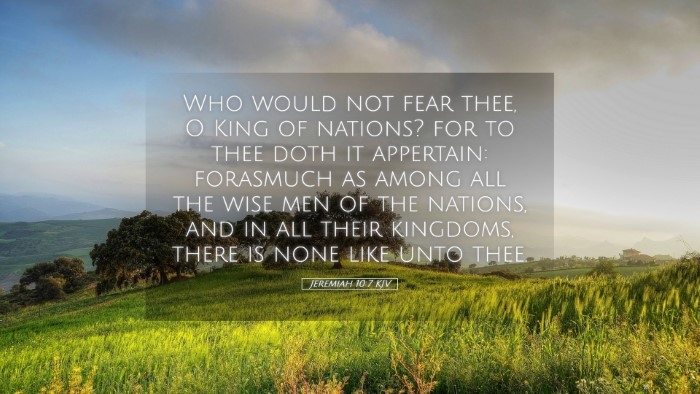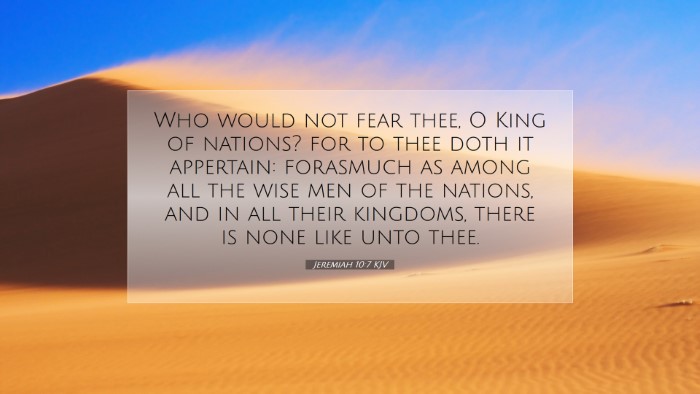Commentary on Jeremiah 10:7
Verse: "Who would not fear you, O King of the nations? This is your due; for among all the wise ones of the nations and in all their kingdoms there is none like you." (Jeremiah 10:7, ESV)
Introduction
This verse from the book of Jeremiah captures a profound element of biblical theology: the recognition of God's sovereignty and supremacy over all nations and deities. In this commentary, we explore interpretations by respected theologians and scholars, emphasizing the significance of reverence due to God.
The Context of Jeremiah
Jeremiah, known as the "weeping prophet," delivered his messages during a tumultuous time in Israel’s history, marked by sin, rebellion, and the impending judgment from Babylon. This specific verse functions as a critical reminder to the people of Judah about the greatness of God compared to the nations and their false idols.
Insights from Commentators
Matthew Henry
Matthew Henry highlights the central theme of fear in this text, suggesting that the fear of God is not merely an emotional response but a recognition of His rightful place in the order of creation. Henry states that the fear of the Lord signifies a deep respect and awe for His majesty and that such reverence is appropriate as God is the supreme ruler of the universe.
Albert Barnes
Albert Barnes remarks that the question posed in the verse serves as a rhetorical vehicle to provoke thought among the Israelites. He emphasizes that God deserves fear and honor due to His incomparable wisdom and authority over the nations. Barnes points out that the phrase "this is your due" implies that the acknowledgment of God's sovereignty is a natural response for humanity. The absence of such fear betrays a profound spiritual blindness.
Adam Clarke
Adam Clarke notes that this verse contrasts Yahweh with the pagan gods, who lack understanding and power. Clarke asserts that the "wise ones of the nations" might appear knowledgeable, but their wisdom pales in comparison to the divine source of wisdom embodied by God. He posits that this recognition of God’s superiority should lead nations to not only fear Him but to submit to His authority and lordship.
The Importance of Reverence
The fear of God is a recurring theme throughout Scripture, establishing a foundation for a healthy relationship with the Creator. The acknowledgment of God’s unmatched authority cultivates humility among believers, encouraging spiritual growth and dependence on divine wisdom. This sentiment is echoed in Proverbs 1:7, which states, "The fear of the Lord is the beginning of knowledge; fools despise wisdom and instruction."
Theological Reflections
This verse serves as an essential reminder for believers today to confront the idols within contemporary cultures—whether materialism, secularism, or humanism. Just as the Israelites were warned against the allure of foreign deities, today's faithful are also called to recognize that there is none like our God, who alone possesses wisdom, power, and sovereignty over all things.
Application for Pastors and Theologians
- Preaching: Pastors can utilize this verse to emphasize the importance of divine fear in their sermons, encouraging congregations to reflect on God’s greatness and majesty in their lives.
- Teaching: Theologians and educators can engage students with discussions surrounding the nature of worship and reverence due to God, contrasting this with cultural idols and philosophies.
- Reflection: Spiritual leaders should encourage personal introspection about the things that may distract from the reverence and worship of God, implementing practices that foster awe and respect in daily life.
Conclusion
Jeremiah 10:7 encapsulates a vital truth that transcends time and culture: the need for an authentic fear of God, grounded in His unmatched wisdom and authority. As believers acknowledge God's sovereignty, they come to understand their place within His creation, inspiring a life marked by reverent worship, submission, and trust in His divine plan.


